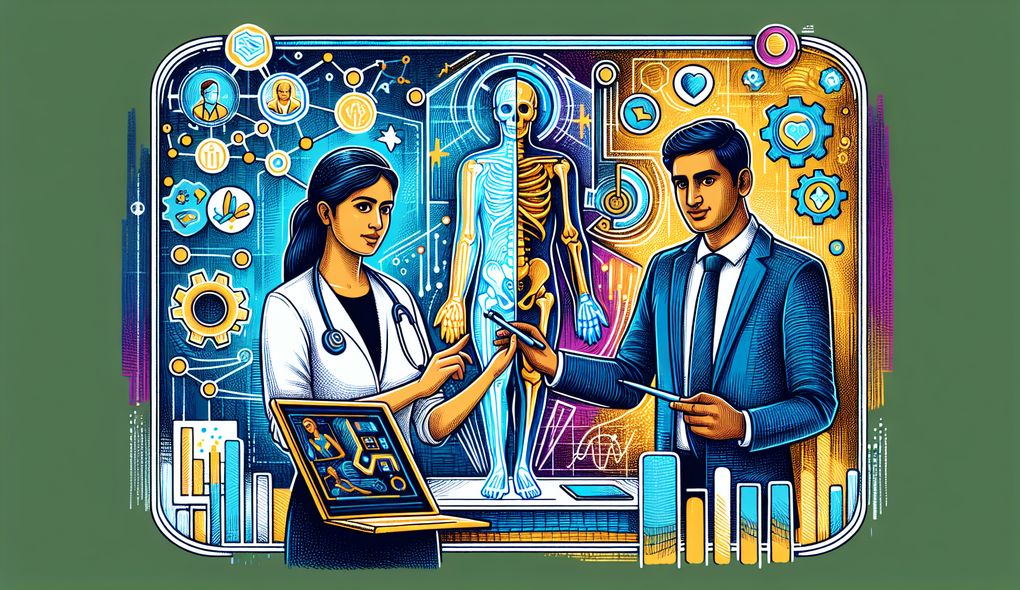What are your strategies for resolving conflicts and managing difficult team members?
INTERMEDIATE LEVEL

Sample answer to the question:
When it comes to resolving conflicts and managing difficult team members, my strategies primarily revolve around open communication and active listening. I believe that addressing conflicts early on is crucial to maintaining a healthy team dynamic. I would encourage team members to express their concerns in a safe and non-judgmental environment, allowing them to openly share their perspectives and feelings. By actively listening, I can understand the root causes of conflicts and work towards finding mutually beneficial solutions. Additionally, I would strive to foster a positive and inclusive team culture that values collaboration and respect. This can be achieved through team-building activities, regular check-ins, and providing opportunities for professional development. Overall, my goal is to create an environment where conflicts can be resolved constructively and difficult team members can be supported and guided towards success.
Here is a more solid answer:
As a Healthcare IT Project Manager, I have developed effective strategies for resolving conflicts and managing difficult team members. Firstly, open and honest communication is key. I encourage team members to share their concerns, ideas, and perspectives, and I actively listen to understand their viewpoints. By establishing clear and open channels of communication, I have successfully addressed conflicts in a timely and constructive manner. Additionally, I believe in leading by example and fostering a positive team culture. I motivate cross-functional project teams by recognizing and acknowledging their contributions, providing clear goals and objectives, and offering support when needed. When faced with difficult team members, I take a proactive approach. I strive to understand their motivations and challenges, and I provide guidance and coaching to help them overcome obstacles and improve their performance. In dealing with conflicts, I focus on finding win-win solutions that align with the project's objectives and the team's overall success. Finally, I am adaptable and flexible, able to adjust my strategies based on new information, changing conditions, or unexpected obstacles. Overall, my strategies for conflict resolution and managing difficult team members are centered around effective communication, positive leadership, and a focus on collaboration and achieving project goals.
Why is this a more solid answer?
The solid answer provides specific examples and details that demonstrate the candidate's experience and expertise in conflict resolution and managing difficult team members. It also mentions strategies for motivating cross-functional project teams and adapting to new information or changing conditions, aligning with the job description requirements. However, the answer could be improved by including more specific examples of conflict resolution and team management strategies.
An example of a exceptional answer:
As a Healthcare IT Project Manager, I have honed my conflict resolution and team management skills through years of experience. I have found that a proactive approach is essential for resolving conflicts and managing difficult team members effectively. Firstly, I prioritize open and honest communication. I create a safe and inclusive space for team members to express their concerns, ideas, and perspectives. By actively listening and showing empathy, I am able to gain a deeper understanding of the underlying issues and collaborate with the team to find solutions. Additionally, I have developed specific conflict resolution techniques, such as mediation and negotiation, to address conflicts in a constructive manner. In managing difficult team members, I focus on understanding their motivations and challenges. I provide guidance and coaching tailored to their needs, helping them overcome obstacles and improve their performance. To motivate cross-functional project teams, I leverage my strong leadership skills. I set clear expectations, establish performance metrics, and provide regular feedback and recognition for their achievements. I foster a culture of trust, collaboration, and accountability, which enables the team to work cohesively towards project success. Furthermore, I am adaptable and flexible, able to quickly respond to new information, changing conditions, or unexpected obstacles. I remain calm under pressure, finding creative solutions and keeping the team focused on the project goals. Overall, my strategies for conflict resolution and managing difficult team members are comprehensive, encompassing effective communication, specific techniques, strong leadership, and adaptability.
Why is this an exceptional answer?
The exceptional answer goes into even more detail, providing specific conflict resolution techniques such as mediation and negotiation. It also emphasizes the candidate's ability to understand and address the motivations and challenges of difficult team members, as well as their strong leadership skills in motivating cross-functional project teams. The answer demonstrates a high level of expertise and experience in conflict resolution and team management, aligning with the job description requirements. However, the answer could be further improved by including measurable outcomes or success stories to showcase the candidate's track record in resolving conflicts and managing difficult team members.
How to prepare for this question:
- Reflect on your past experiences in resolving conflicts and managing difficult team members. Think about specific situations and strategies that were effective.
- Research and familiarize yourself with different conflict resolution techniques, such as mediation, negotiation, and active listening.
- Review your knowledge of leadership principles and strategies for motivating teams, particularly in cross-functional settings.
- Consider how you adapt to new information, changing conditions, or unexpected obstacles in your work. Reflect on specific instances where you demonstrated adaptability and flexibility.
- Prepare examples of successful conflict resolution and team management, including measurable outcomes or success stories.
- Practice articulating your strategies and experiences in a concise and confident manner to effectively communicate them during the interview.
What are interviewers evaluating with this question?
- Communication skills
- Leadership skills
- Interpersonal skills
- Problem-solving abilities

